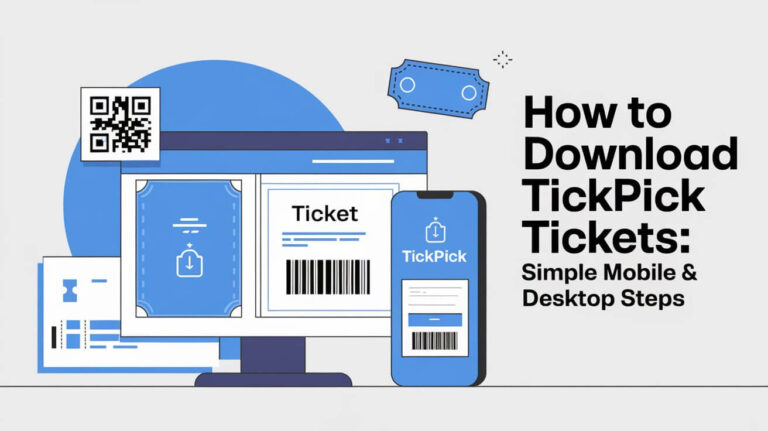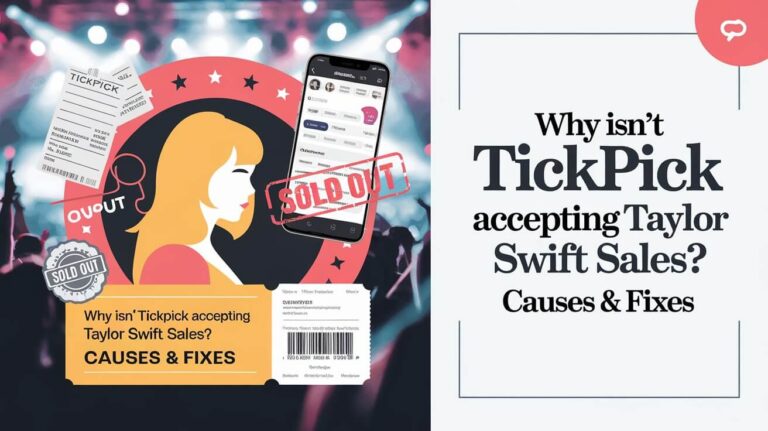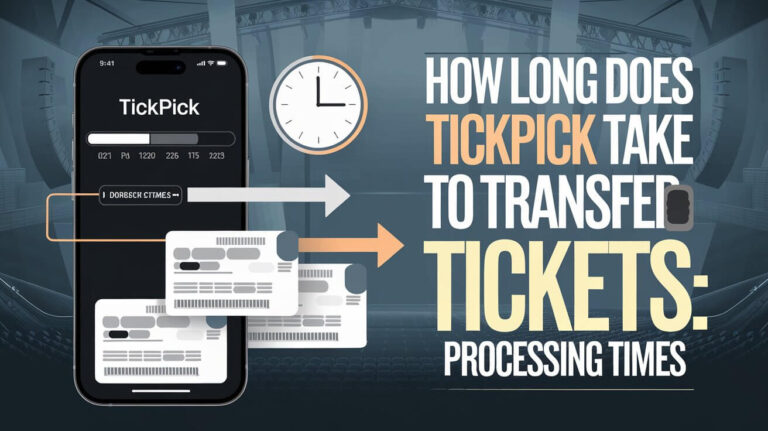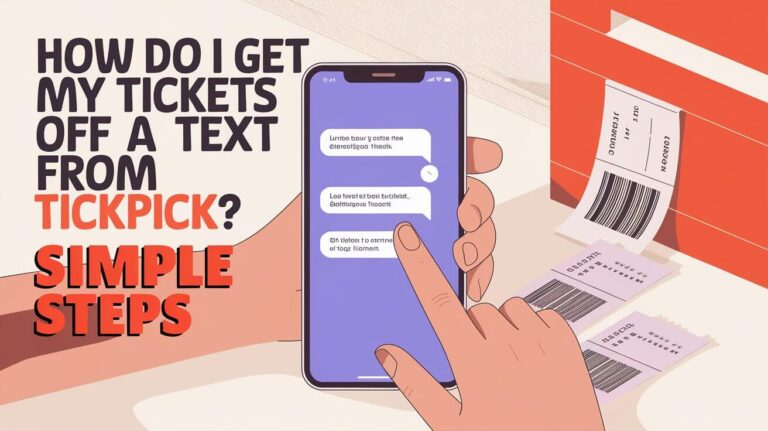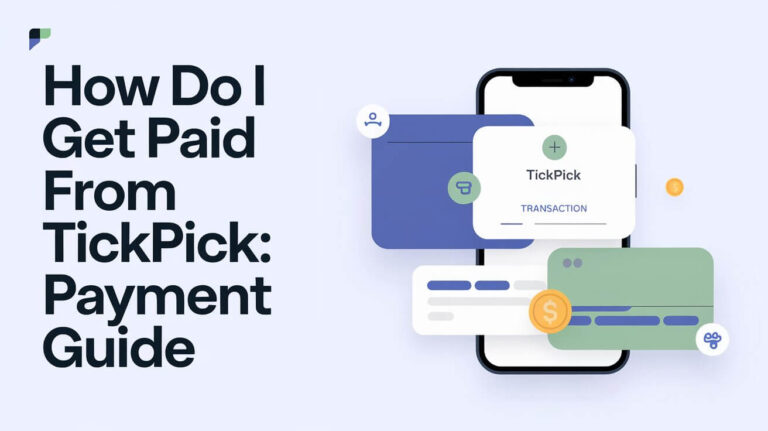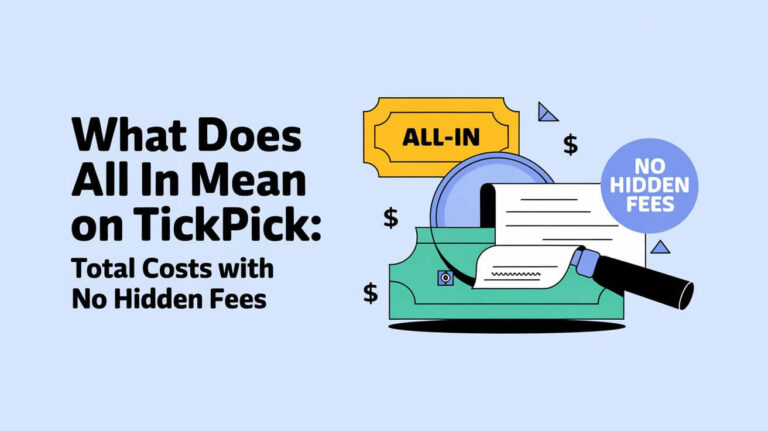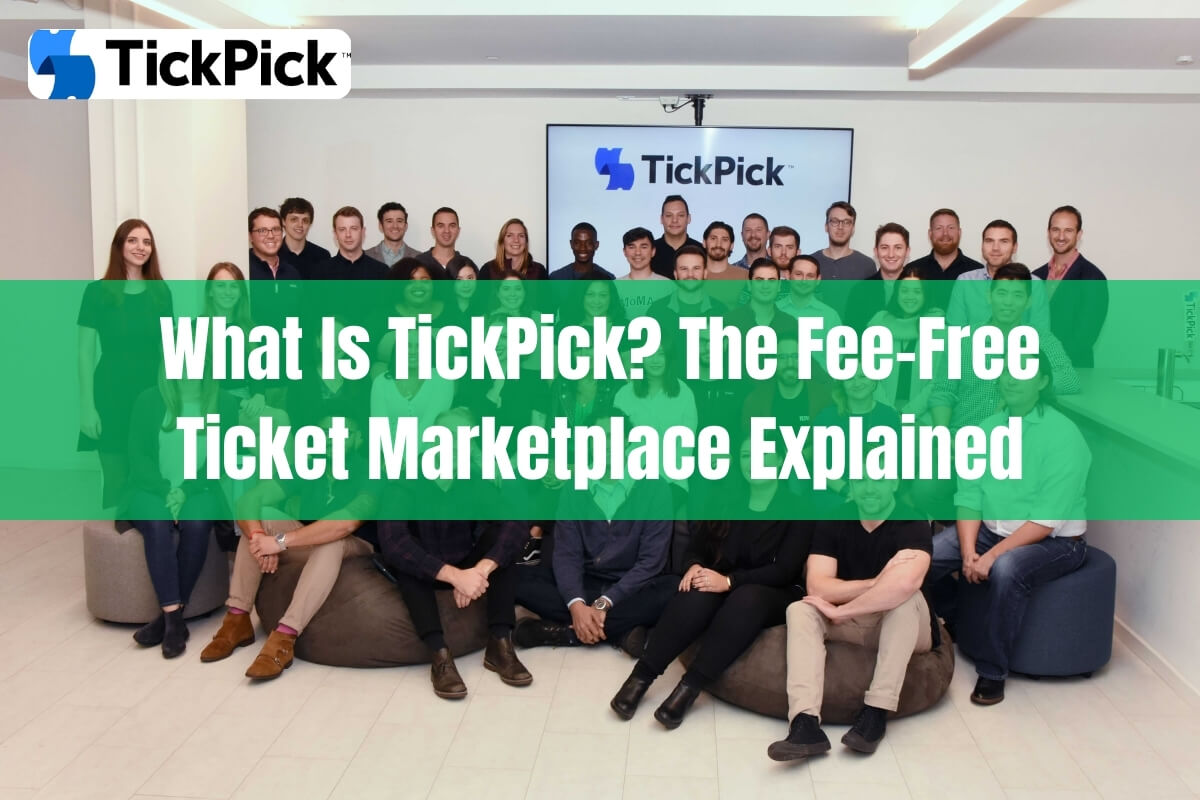
Are you searching for the best place to buy tickets for your favorite sports teams, concerts, theater shows, and other live events? If you want an easy, affordable, and transparent ticket buying experience, TickPick may be the solution you’re looking for.
TickPick is a leading online ticket marketplace that provides a no-fee alternative to sites like StubHub and Ticketmaster. The New York-based company has quickly grown since its launch in 2011 by putting money back into buyers’ pockets.
In this comprehensive guide, we’ll explain what TickPick is, how its marketplace works, its unique fee-free model, key features for buyers, company history and growth, and everything else you need to know about this disruptive ticket platform.
A Brief History of TickPick’s Founding and Funding
Co-founders Brett Goldberg and Chris O’Brien launched TickPick in 2011 as a new way for event-goers to buy tickets without all the annoying fees tacked on.
The idea stemmed from Goldberg’s experiences as a college student reselling tickets he purchased on sites like StubHub. He realized there was an opportunity to build a more transparent, fan-friendly ticketing marketplace.
Goldberg and O’Brien patented TickPick’s novel bidding system that allowed buyers to name their price and make offers on event tickets. After bootstrapping the company early on, they raised a small seed round of $250,000 in 2012 to get TickPick off the ground.
The focus remained on profitability in the first years rather than relying on large amounts of investor funding. In fact, TickPick didn’t hire its first software engineer until 2015, with co-founder O’Brien building the original platform.
After rapidly expanding its inventory and buyer base, TickPick raised $40 million in 2019 from growth equity firm GreyLion Capital. This major round fueled expansion plans after the platform emerged as one of the fastest-growing tech companies in the U.S.
How TickPick’s Ticket Marketplace Connects Buyers and Sellers
In a nutshell, TickPick operates as an online ticket marketplace connecting buyers and professional ticket sellers. It does not sell the tickets directly but provides the platform for transactions.
The marketplace includes a wide range of sellers, from ticket brokers to teams, venues, and event organizers. TickPick’s massive inventory comes from fragmentation and aggregation of sources.
On the buyer side, customers can search for tickets on TickPick’s website or mobile apps for iOS and Android. The platform uses algorithms to price and rank the ticket deals. Each ticket listing shows a “Deal Score” reflecting its value based on factors like seat location.
TickPick also still utilizes its signature bidding system where buyers can make offers and negotiate prices with sellers. When a seller accepts a bid, the tickets are purchased directly on TickPick’s secure platform.
How Does TickPick Make Money Without Charging Buyer Fees?
What really sets TickPick apart from other major ticket marketplaces is its fee-free structure for buyers. But how does it manage to make money without passing on the usual service fees?
TickPick generates revenue primarily by charging sellers a 10% commission on every ticket sold through its platform. There are no tacked-on charges for buyers to boost profits.
This pricing strategy incentivizes sellers to list their ticket inventory on TickPick. The more tickets available, the better the selection for buyers. Focusing on building a robust supply side is crucial to TickPick’s business model.
Strategic partnerships with major sports teams, venues, colleges, and events also help TickPick secure exclusive ticket inventory and drive demand. Data insights gained from ticket sales further optimize its pricing algorithms to match supply and demand.
Premium services for buyers looking for VIP access and perks provide additional revenue streams beyond the standard ticket transactions.
Key Benefits for Buyers Who Use TickPick
There are several compelling reasons for ticket buyers to choose TickPick over competitors like StubHub and VividSeats:
- No hidden fees – The advertised price you see is the final price you’ll pay at checkout. Complete price transparency is a core pillar of TickPick’s buyer experience.
- BuyerTrust Guarantee – All tickets purchased on TickPick are 100% guaranteed valid for entry. You’ll receive working tickets in time for the event.
- See all prices upfront – No need to enter payment info just to see the full costs. TickPick shows the total price from the start.
- Bid on tickets – Use TickPick’s unique bidding system to negotiate deals and offer your price.
- Best prices – With low seller commissions, TickPick helps buyers find deals and saves them money versus other marketplaces.
- Improved search – Advanced algorithms surface the best ticket options based on key factors like seat quality.
Explosive Growth Has Fueled TickPick’s Market Disruption
Since those early days bootstrapping the company in 2011, TickPick has rapidly emerged as a major player disrupting the secondary ticket market.
Its exponential growth resulted in TickPick landing on Deloitte’s Technology Fast 500 list for five consecutive years starting in 2016. The company also appeared on the Inc. 5000 list of the fastest-growing companies in America.
Several key moves fueled TickPick’s rise:
- Strategic acquisitions – TickPick acquired two competitors, RazorGator and Rukkus, in 2018 to expand its ticket inventory and technology capabilities.
- High-profile partnerships – Onboarding exclusive partnerships with major sports teams like the Houston Dynamo, college programs like Marquette Athletics, and music festivals like Firefly Music Festival.
- Raised visibility – Increased brand awareness by speaking out against competitor’s high fees and running targeted digital marketing campaigns.
- Platform innovation – Regularly improving its platform with new features like interactive venue seat maps and enhanced search filters.
Who Are TickPick’s Biggest Competitors?
TickPick competes in the fiercely competitive secondary ticket sales market against the likes of StubHub, Vivid Seats, and SeatGeek.
As the largest no-fee ticket marketplace in the U.S., TickPick has certainly carved out a niche for itself. But it faces challenges from major players like:
- StubHub – The eBay-owned ticketing giant also tries to position itself as “fee-free” while still charging buyers hidden costs.
- VividSeats – Major marketplace known for loyalty rewards programs aimed at frequent ticket buyers.
- SeatGeek – Emphasizes its own Deal Score feature to rate ticket value and prices.
- Ticketmaster – As the primary ticket provider for many venues, it offers both primary and resale tickets.
Despite the intense competition, TickPick continues gaining market share thanks to its transparent, fan-friendly fee-free approach.
Conclusion
In summary, TickPick is an online ticket marketplace on a mission to eliminate fees and hidden costs for event-goers.
Its unique bidirectional bidding system patented back in 2011 allows buyers to make offers and negotiate prices with professional ticket sellers. This innovation was just the beginning.
A decade later, TickPick has disrupted the ticket resale industry by saving buyers money through a transparent fee-free model. It makes money by charging sellers commissions instead.
Strategic partnerships, acquisitions, and platform improvements have fueled incredible growth. Today TickPick stands as the largest no-fee ticket marketplace in the country.
For buyers tired of misleading fees driving up costs on sites like StubHub and Ticketmaster, TickPick represents a welcome alternative. Its buyer guarantees, discounted prices, and responsive support team offer a refreshing ticket buying experience.
In a nutshell, that explains the TickPick story and what sets this ticket marketplace apart. Next time you’re searching for the perfect seats to a big game, concert, or theater show, consider checking TickPick to discover the best deals with no hidden costs.

